“We can give space to optimism.”
An interview with the skier and environmental advocate Vanessa Beucher, who lives in La Grave, France
“We know there is always change and change is part of life, but in the past few years, that pace of change seems to be happening so much more quickly, in both predictable and unpredictable ways. But we can give space to optimism and not give up hope that we can continue the story of humankind.”
Vanessa and I first chatted in 2013, when I interviewed her about a cool film project she’d been involved with on women’s snowboarding in Iran. We kept in touch through the socials, and she always posts interesting stuff about environmental issues and living in La Grave, the famously hardcore ski village in the French Alps.
With that in mind, I was pretty excited to speak to her for the newsletter. We chatted about having a baby at a time of climate crisis, how global heating is affecting La Grave and why it’s super-important to stay balanced and not be too pessimistic about the future. I hope you enjoy our chat.
Hey Vanessa, it’s mid-September so I won’t ask how the snow is, but how are you doing?
Right now, it’s a special time for me as I’m eight months pregnant. I’m a bit more tired now but before that I was really motivated to go hiking, swimming, and climbing. Overall, I’ve been feeling good.
That’s great to hear. How is being pregnant in a climate crisis?
My partner is from Spain, and he works as a mountain guide, and we are very much embedded in mountain culture. It took me a while to decide that I wanted to become a mother, and among the reasons were questions about raising a kid with this vision of how our planet could look in the next 10 or 20 years, and beyond.
We know there is always change and change is part of life, but in the past few years, that pace of change seems to be happening so much more quickly, in both predictable and unpredictable ways.
But we can give space to optimism and not give up hope that we can continue the story of humankind. And also, we can instil environmental awareness, which has been growing a lot in recent years, in our children.
The pace of change does seem to be accelerating. How is that playing out in La Grave?
First on a visual level, from the village where we live, we constantly have the view over the glacier of the north face of La Meije. I wasn’t born in La Grave, but I’ve been living here for 10 years now, and I can see visually how the glaciers have been receding, especially in the last three-four years.
This summer started really well with a lot of rain and snow in May and June but then we had a lot of heat at the end of August and now we still have quite warm temperatures for mid-September. It’s not just the shrinking, it’s also the albedo effect, from the snow coverage that lasts all year which makes glaciers white, that tends to disappear more and more, so the glaciers are greyer.
We’ve had episodes of Sirocco, the sand desert winds, some winters, which tend to get stuck in the glacier and with the dark colour that accelerates the melting phase, as it absorbs rather than reflects the heat.
A friend with a scientific background also tells me the forest elevation level is getting higher. And there’s a really high refuge at almost 2,000m which you didn’t used to be able to see from the village, that is now visible as everything around it has melted. The visual changes are quite striking.
Some mountain huts in the Ecrins range have been affected by rockfalls and water-related issues. Water supply in high mountain areas is something that will become an important issue over the next few years.
How has it affected mountain guides in the area?
La Grave is mostly known for skiing, but I would say the last really snowy winter was 2017/8. Last winter we could still ski and ski tour, but it was not so consistent. The decision on whether to replace the lift section on the glacier is being taken this week and it’s really igniting passions on both sides. We have a t-bar lift that needs to be removed, it’s powered by gas and oil and consumes a lot, and its anchor is collapsing as it’s set on a part of the glacier that is moving a lot.
Some people argue in favour of leaving the glacier wild and if people want to have access to it, they have to reach it by ski touring or splitboarding. But SATA, who owns the lift (and also owns Alpe d’Huez, Les Deux Alpes) argues that the snow level is getting higher and higher each winter, and whether the lift can be a profitable business moving forwards.
It’s a tricky question that many places are facing. How do we find the balance between preserving these wild spaces and maintaining some economic balance?
In many ways La Grave is still a village with a lift, it’s not a ski resort. We are 1000 people, including the nearby hamlets, but hailing from 24 countries. The fact that this place is so wild and steep, with a special ski culture, has always attracted people with a strong passion for the mountains.
It has managed to stay much less developed [than most ski resorts]. It gives you an idea of how people can still live in relatively wild preserved places. We don’t know how the climate will evolve over the next few years, but people will have to adapt no matter what.
Can a more responsible form of tourism exist in places like La Grave?
Some organisations here are trying to develop what we would call an alternative kind of tourism, with a more scientific approach, a kind of citizen science. And as we only have one lift, if you want to explore the mountains there are lots of things you can do while hiking, skinning and snow shoeing, these softer forms of tourism.
What else makes you feel optimistic?
I think both people from the outside who chose to settle here like me and locals are realising more and more the value of this place. In so many resorts the ski business is associated with the real estate business, and it’s getting harder to live in these places as it’s more expensive and there are less year-round rentals available.
There is a generally strong opposition against new real estate projects. Looking around [at other ski resorts] people see how many mistakes have been made and once you have made some mistakes it’s too late to take it back.
I was reading recently about a little town near here called Cervieres, and there was a project in the 1960s and 70s where they are starting to develop the ski resorts Serre Chevalier and Montgenevre, but there was a general consensus against the development of the ski resort, and that was quite unique at that time. Now it’s a village and they developed a cross country resort but it’s a good example of a time when citizens were able to stand up against a potential project.
What’s one of your favourite memories from last winter?
January can be a rough month in La Grave because it’s really cold and you have no sun for two months, but on the other hand you have this amazing snow quality, it’s cold and preserved, and a unique atmosphere as it’s mostly locals on the lift.
I had a day with two girlfriends, where we kept lapping the lift and getting fresh tracks and it was just amazing, we felt like we had the mountain to ourselves.
What advice do you have for people who love the mountains and want to get more involved in environmental issues?
Get in touch with organisations, such as Mountain Wilderness and Protect Our Winters. The way you get information is very important, as there are so many things on the web, but these are great collectives.
I would also say keep a certain balance, for me I don’t want to be like an ostrich and put my head in the sand, I want to be aware of things, but I also try to have some distance and perspective without being in total despair all the time. The balance is a challenge, but it’s important to keep a positive mindset.
Read more about Vanessa and her work on her website.
Also visit Mountain Wilderness & Protect Our Winters, I took part in POW’s Send it campaign this week and you should too. It takes less than a minute.
Other news:
My interview with the awesome mountain sage Luca Albrisi, for the latest issue of Huck Magazine, is now online. We talk about empty ski resorts and whether it’s smart to keep failing ski resorts afloat at a time of climate crisis. You can read it here.
My lovely old pal and ex-colleague Tristan Kennedy also interviewed Luca for this great Wired piece on how ski resorts are preparing for a future with no snow.
It’s hard not to feel huge despair at the UK government’s decision to approve Equinor’s development of the Rosebank oil field. As good a time as any to get involved or donate to Stop Cambo & Just Stop Oil.
On that note, I watched the naturalist, Chris Packham, interrogate his own actions (and inactions) on climate last week in: ‘Is it time to break the law?’. I watched it with the family (my 13 year old is studying the Suffragettes at school) and found it very relatable and moving. You can watch it here (though it might only work for UK viewers).
And finally, Vanessa’s comments on raising kids in a climate crisis made me think of this recent
post about the same subject, which included this excellent line: “ It’s critical to help kids and young people see how much possibility remains in the world, and I think the best way to do that is not lose sight of it ourselves.”Please fwd this newsletter to anyone who you think might be interested & if you have any story tips on any of these themes pls get in touch.
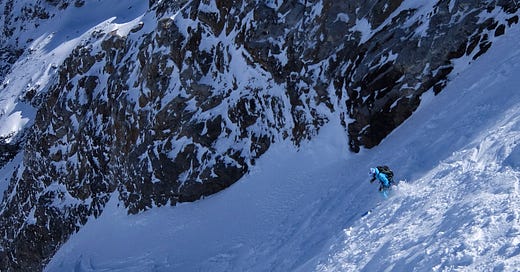



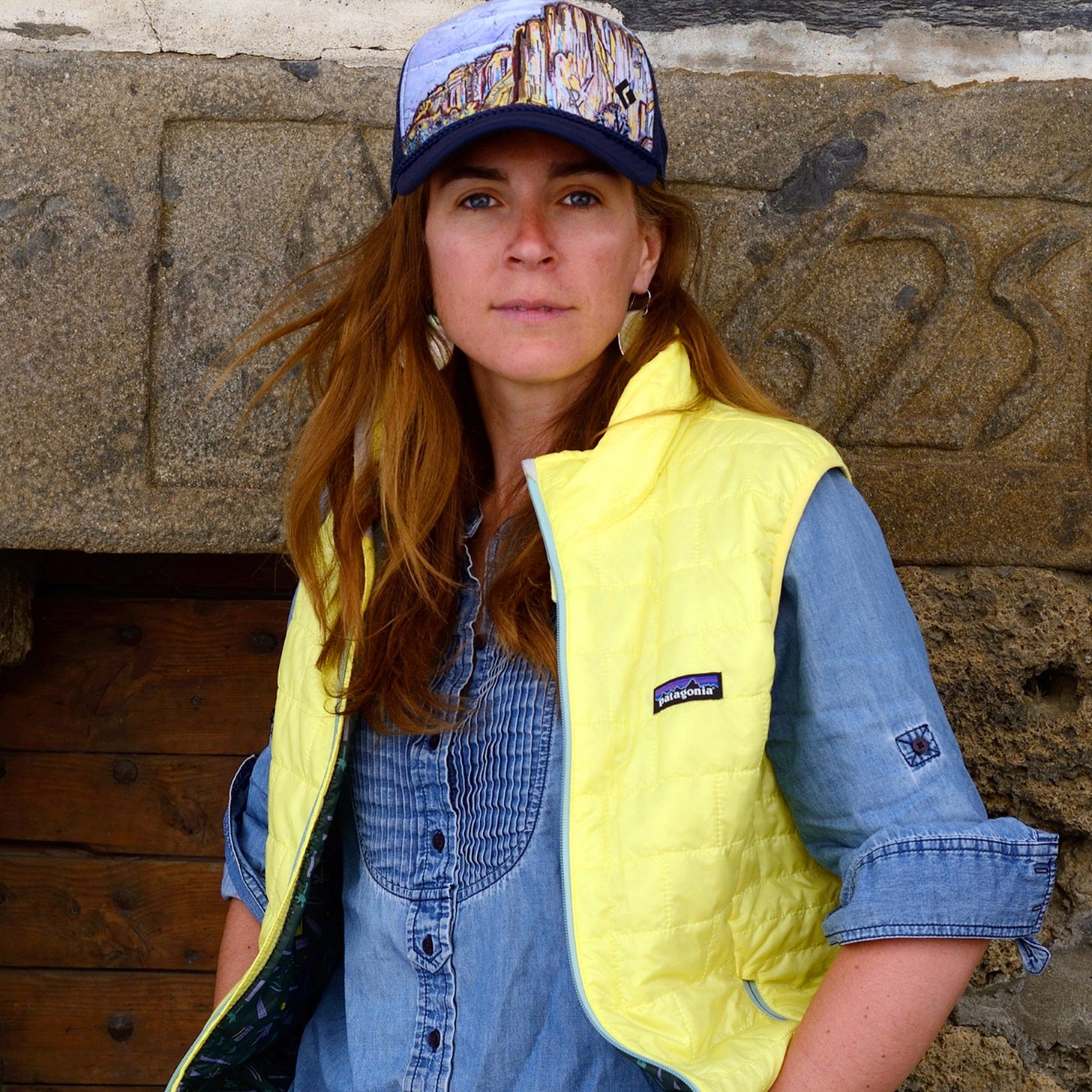
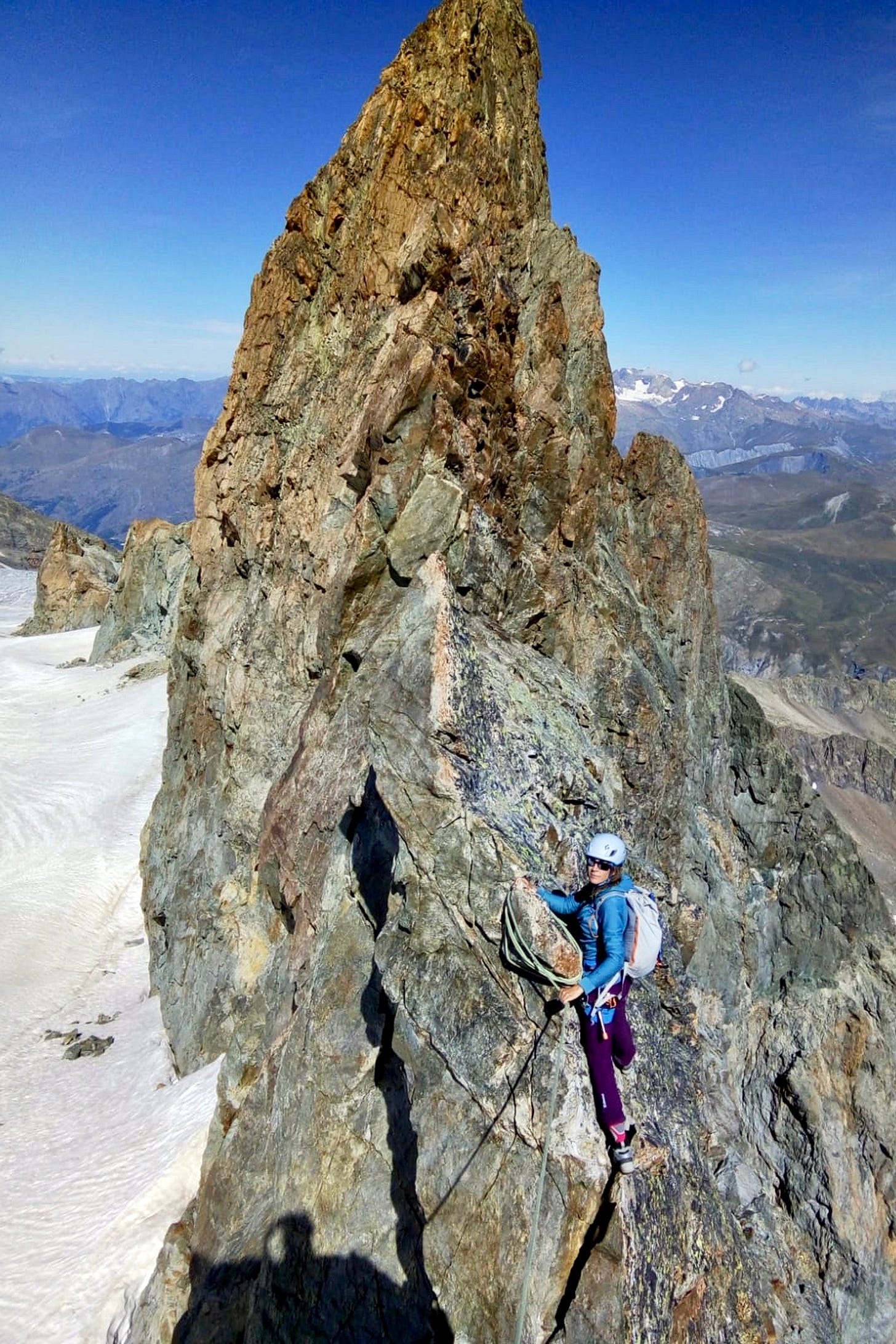
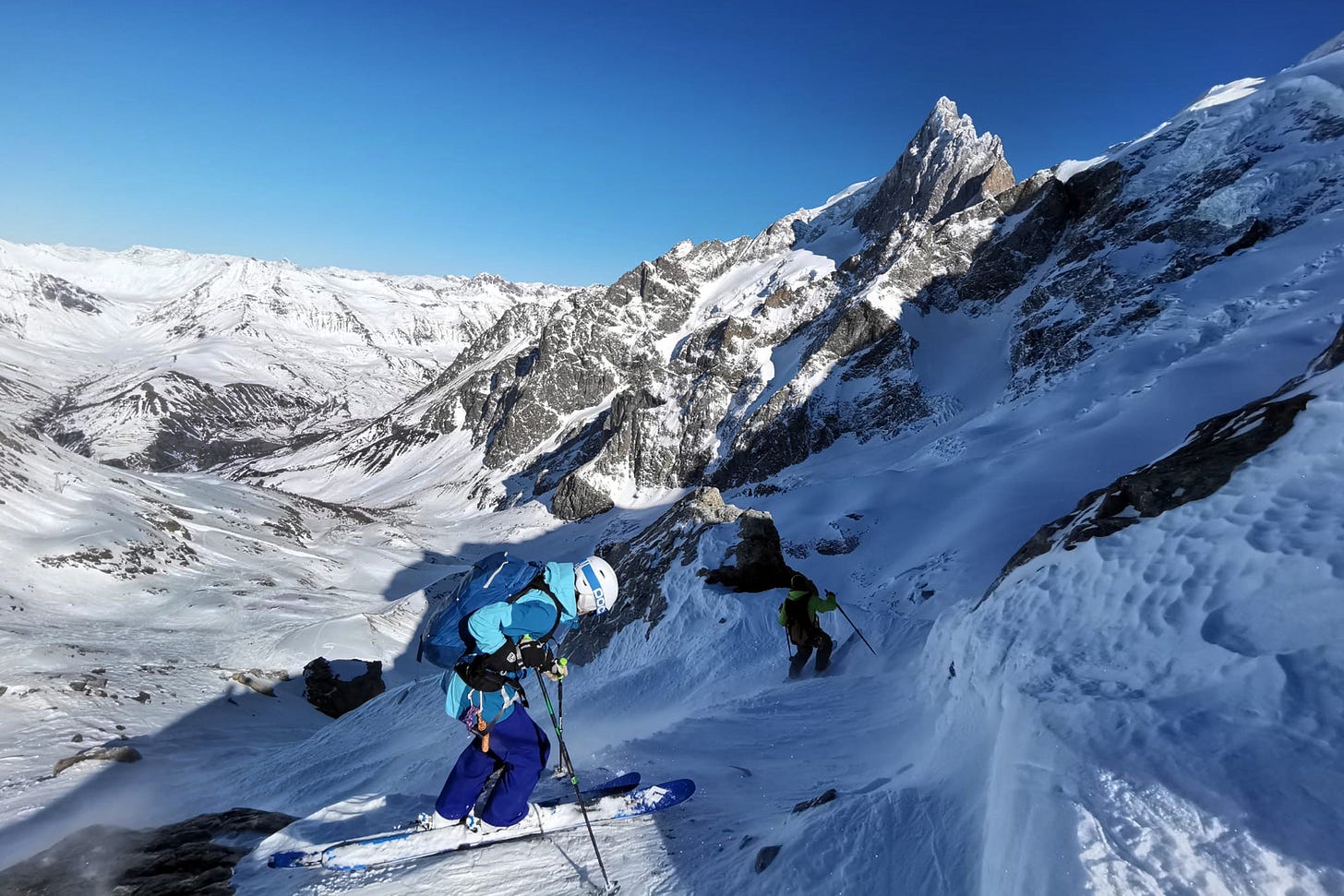
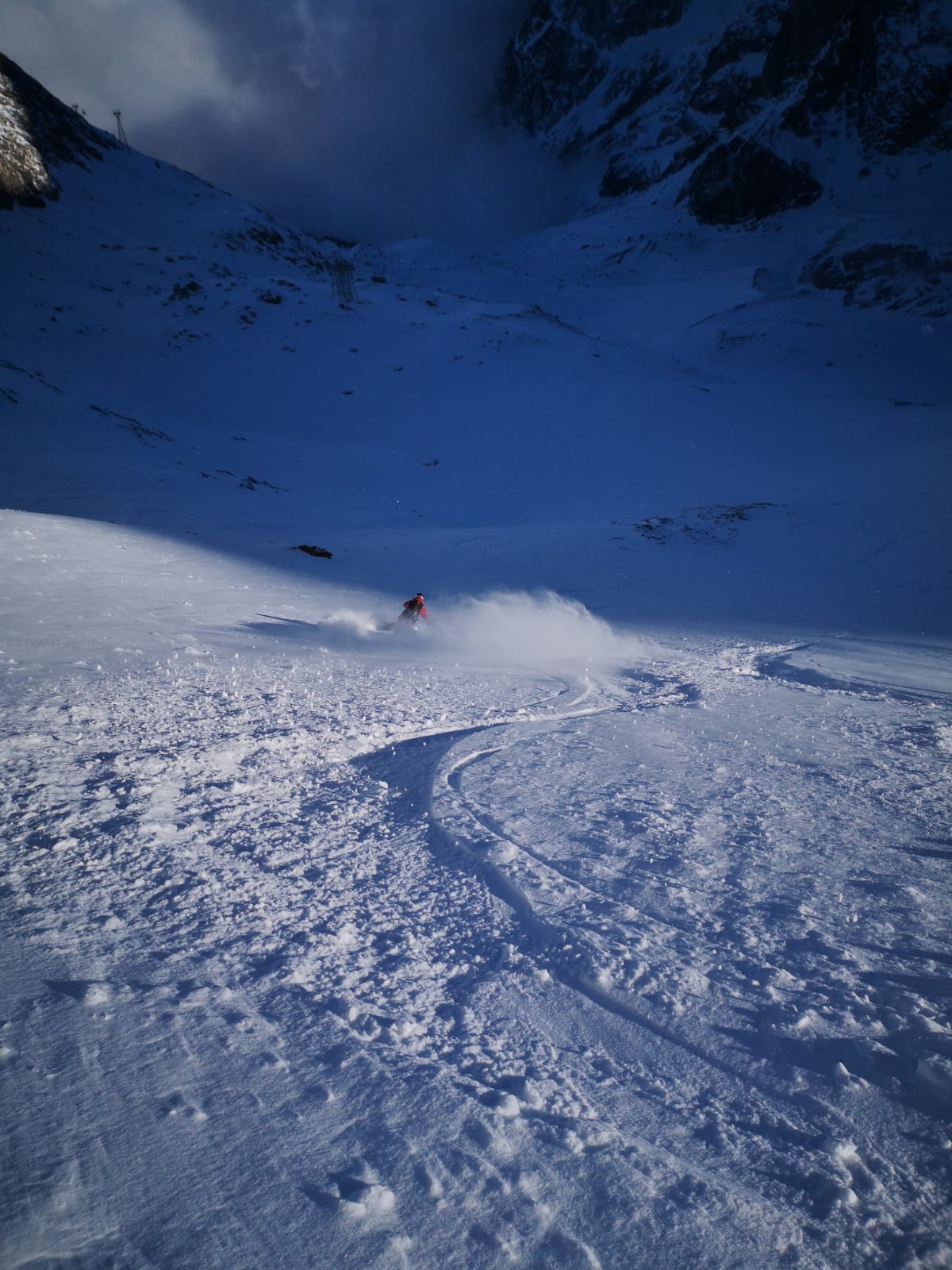
Nice one, great read and thanks for quoting POW Vanessa :)
Not easy to thread the fine line between pro and anti glacier lift in La Grave, I'd say I share most of what you say here.
Great read.
I also watched "Is it time to break the law" very thought provoking. I conclusion was not for me or most people, we still have a long way to go to "bring along" most people we cant afford to alienate potential support or fire up the right wing politicians into more drastic laws.
Excellent Substack, keep it up.